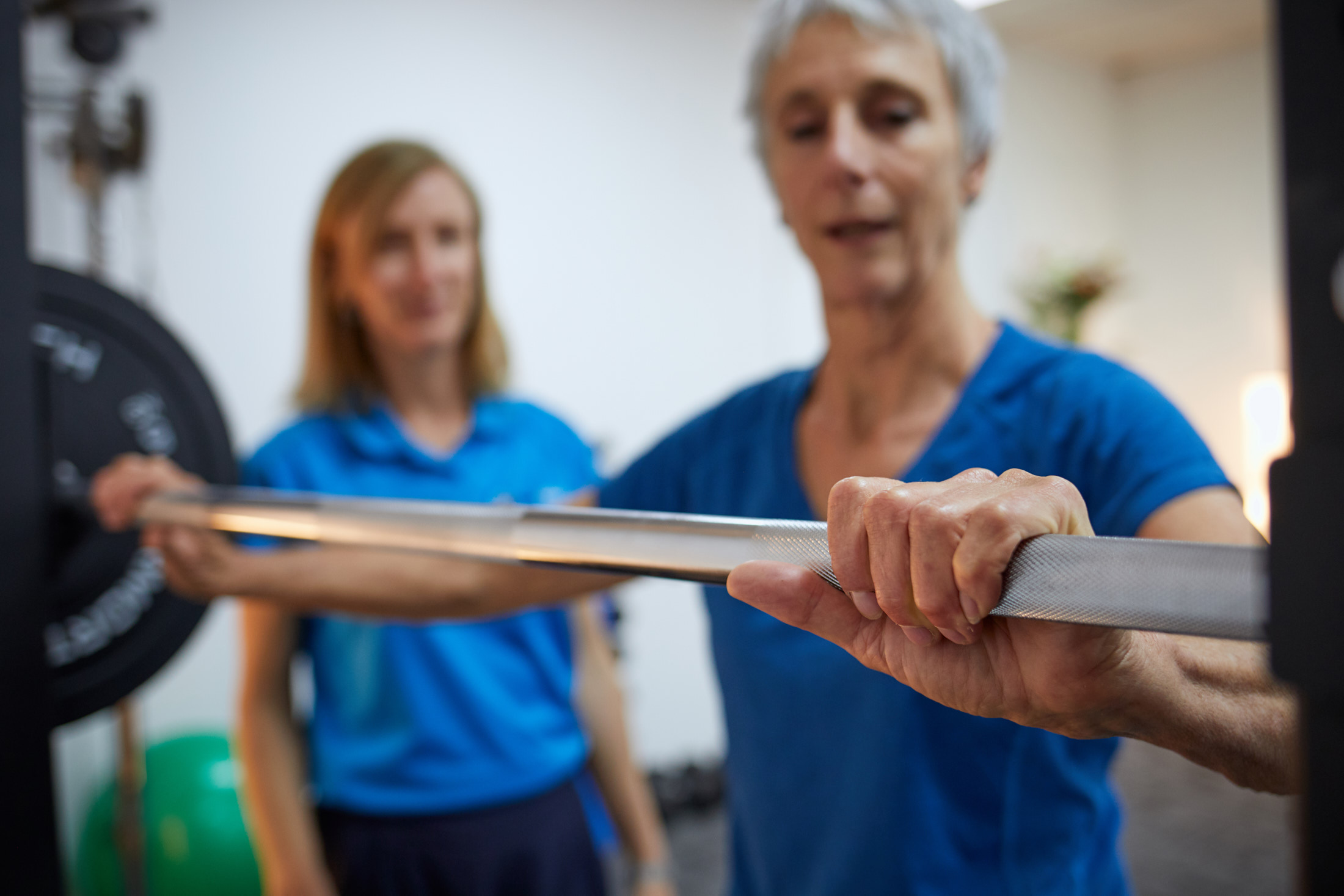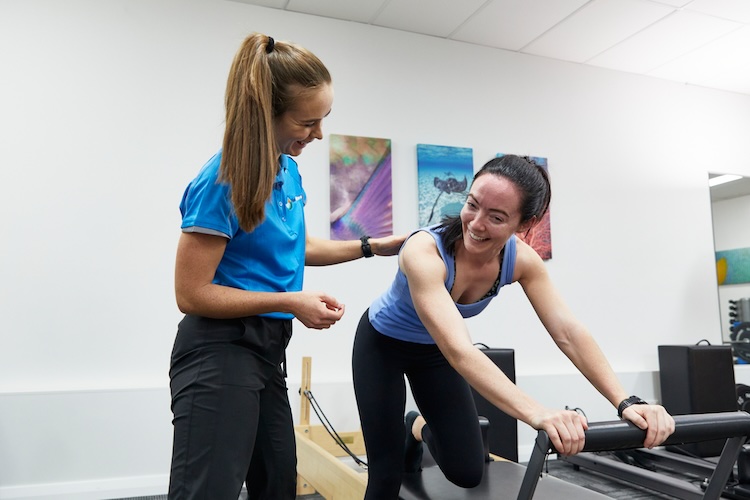The All-Encompassing Super Condensed Guide to Why Exercise Is For Everyone
As the title says this article explains why exercise is for everyone. Written by Next Wave Sports Physiotherapist Zac Betts, it outlines some key aspects on why exercise is so essential for our physical and mental health.
Physiotherapy Exercise Rehabilitation
As part of our treatment, physiotherapists at Next Wave in O’Connor (Fremantle area) utilise movement-based rehabilitation. Movement-based rehabilitation is a great way to specifically target and rehabilitate injuries. However it is a well-documented that appropriately structured and intensity matched exercise, is of great benefit to any population at any level.
As such, movement-based or exercise-based therapy isn’t just for injured people or those who experience chronic pain … it is for everyone.
Exercise for Pain Relief
When you are in pain, exercise might feel like that last thing you want to do. On the contrary, it is widely accepted and tested, that exercise (when appropriately dosed) has a pain relieving effect. The exact mechanism as to why this happens is currently unclear. However the commonly accepted theory is known as pain-gate or neuromodulation.
In its simplest form, pain is the result of your brain interpreting a signal from the body as threatening. As your body intends to protect itself, a pain response is generated so it can elicit a physical action to get out of threat. This is known as negative feedback.
Conversely, when you exercise, your body receives a signal which details that your body is moving and completing a task. Through completing the task of moving, your brain essentially ticks a little box saying “yes I can do this movement”. This process is known as positive feedback.
Essentially if we engage in exercise, we hit pause on all of the negative feedback being fed into your brain, by sending some positive feedback to the brain. This in turn serves to reduce pain.
Both aerobic (running, swimming, etc.) and resistance (weights) forms of exercise are proven to have this effect. So most forms of exercise have been proven to help reduce pain. However the important factors to control include both intensity and pacing. This is where a physiotherapist can help!
Exercise for Mental Health
On top of pain relief benefits, exercise also improves mental health. Studies which looked at mental health sufferers, showed that when partaking in exercise regularly, an average of 43% less poor mental health days were experienced.
Reasoning behind the increases experienced in mental health included: release of ‘feel good’ hormones, positive feedback (the same as explained above) and improvements in general health systems such as cardiovascular.
Not all exercise is created equal for improving mental health though. Team sports and exercise which involved socialising saw greater improvements in mental health in these studies. There are of course a few other factors that come into play with this though, which includes the order you complete exercises in if doing a work out, intensity and pacing. Again… these are all things a physiotherapist can help with.
Physical Activity in the Work Place… How does it stack up?
A common point of contention is whether or not physical activity in the workplace can serve to take the place of exercise done in leisure time. A number of great quality studies have looked into the debate and have made similar conclusions based upon 5 main points.
1. Workplace physical activity (WPA) is not completed to a high enough intensity over a short period of time to see changes to the cardiorespiratory system. Instead the activity is lower intensity over a longer period of time.
2. WPA results in a long-term elevated heart rate through-out the day. Which, if no cardiorespiratory training is completed regularly, increases your risk of heart disease.
3. WPA raises blood pressure long-term. Again, this is a risk factor for heart disease if no cardiorespiratory training is completed.
4. WPA often does not allow for significant recovery times throughout the day. Your body needs time to rest. Generally workers who experience heavy levels of physical activity do not give their body enough time to recover. In the sporting world we would label this as overtraining, to help with perspective.
5. WPA increases levels of inflammation. Inflammation activates nerves when they shouldn’t be, it makes things sore and keeps things sore.
So based on these points it has become commonly accepted that WPA cannot replace leisure time exercise. On the contrary, these points actually support the idea that you should be placing even more importance on exercise if your work involves physical activity. So if this sounds like you or someone you know… encourage them to start exercising or see a physiotherapist for help to get started.
Exercise and the Immune System
So winter is here (does that joke ever get old?) and now everyone is sick. But did you know that regular exercise helps to boost your immune system and reduce the likelihood of you getting sick?
Exercise does a few good things to boost the immune system, namely: increasing body temperature, increasing blood flow (this means more good nutrients to organs and muscles in the body to stay healthy), and increased metabolism (the rate at which reactions happen in your body… faster metabolism = better chance of your body fighting off infection).
Naturally though you want to make sure that your body gets enough rest to recover. If you don’t you may just end up making yourself sick easier due to your body being fatigued. So as you could guess… go see a physiotherapist to get some advice on exercise and rest.
So I exercised once, and I injured myself, and now I don’t want to exercise… Is exercise still for me?
YES!!!
As I have previously touched on, there are a number of factors at play when exercise is considered to be appropriate or not. These include intensity, pacing, sequencing (order exercises are done in) and appropriateness for your body.
We see so many people that want to get healthy but don’t know how to get started. So eventually they start, only to injure themselves in the midst of all their good work. This is where physiotherapists as movement and exercise experts can help to ensure that you only receive the good parts of exercise, and not the potential bad ones.
Physiotherapy Exercise Rehabilitation and Beyond
Exercising right is an essential part of maintaining one’s mental and physical health. For those who are injured or experience persistent pain it is essential to rehabilitate correctly so you can enjoy exercise and other active leisure pursuits.
At Next Wave, physiotherapy begins with a comprehensive initial assessment. This helps you to get crystal clear on what the contributing factors are to your injury or pain. From there your physiotherapist will develop a treatment plan with you which may include manual therapy, a home exercise program or movement based rehabilitation in a semi-private group class. Most importantly you will learn self management strategies and feel confident that you are moving in the right way.
Whatever exercise you do, it’s important to do it right.
Physiotherapy addresses aches, strains and niggles but also more serious injury and pain that persists and stops you from exercising. Physiotherapy Exercise Rehabilitation helps you recover from injury, build exercise tolerance and beyond to peak performance.
Move, think, feel alive! Make an appointment today.






